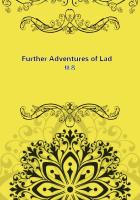The mode, then, of having something external to myself as mine, consists in a specially juridical connection of the will of the subject with that object, independently of the empirical relations to it in space and in time, and in accordance with the conception of a rational possession.A particular spot on the earth is not externally mine because I occupy it with my body; for the question here discussed refers only to my external freedom, and consequently it affects only the possession of myself, which is not a thing external to me, and therefore only involves an internal right.But if Icontinue to be in possession of the spot, although I have taken myself away from it and gone to another place, only under that condition is my external right concerned in connection with it.And to make the continuous possession of this spot by my person a condition of having it as mine, must either be to assert that it is not possible at all to have anything external as one's own, which is contrary to the postulate in SS 2, or to require, in order that this external possession may be possible, that I shall be in two places at the same time.But this amounts to saying that I must be in a place and also not in it, which is contradictory and absurd.
This position may be applied to the case in which I have accepted a promise; for my having and possession in respect of what has been promised become established on the ground of external right.This right is not to be annulled by the fact that the promiser having said at one time, "This thing shall be yours," again at a subsequent time says, "My will now is that the thing shall not be yours." In such relations of rational right, the conditions hold just the same as if the promiser had, without any interval of time between them, made the two declarations of his will, "This shall be yours," and also "This shall not be yours"; which manifestly contradicts itself.
The same thing holds, in like manner, of the conception of the juridical possession of a person as belonging to the Having of a subject, whether it be a wife, a child, or a servant.The relations of right involved in a household, and the reciprocal possession of all its members, are not annulled by the capability of separating from each other in space; because it is by juridical relations that they are connected, and the external mine and thine, as in the former cases, rests entirely upon the assumption of the possibility of a purely rational possession, without the accompaniment of physical detention or holding of the object.
Reason is forced to a critique of its juridically practical function in special reference to the conception of the external mine and thine, by the antinomy of the propositions enunciated regarding the possibility of such a form of possession.For these give rise to an inevitable dialectic, in which a thesis and an antithesis set up equal claims to the validity of two conflicting conditions.Reason is thus compelled, in its practical function in relation to right- as it was in its theoretical function- to make a distinction between possession as a phenomenal appearance presented to the senses, and that possession which is rational and thinkable only by the understanding.
Thesis.- The thesis, in this case, is: "It is possible to have something external as mine, although I am not in possession of it."Antithesis.- The antithesis is: "It is not possible to have anything external as mine, if I am not in possession of it."Solution.- The solution is: "Both Propositions are true"; the former when I mean empirical possession (possessio phaenomenon), the latter when I understand by the same term, a purely rational possession (possessio noumenon).
But the possibility of a rational possession, and consequently of an external mine and thine, cannot be comprehended by direct insight, but must be deduced from the practical reason.And in this relation it is specially noteworthy that the practical reason without intuitional perceptions, and even without requiring such an element a priori, can extend its range by the mere elimination of empirical conditions, as justified by the law of freedom, and can thus establish synthetical propositions a priori.The proof of this in the practical connection, as will be shown afterwards, can be adduced in an analytical manner.
8.To Have Anything External as One's Own is only Possible in a Juridical or Civil State of Society under the Regulation of a Public Legislative Power.















